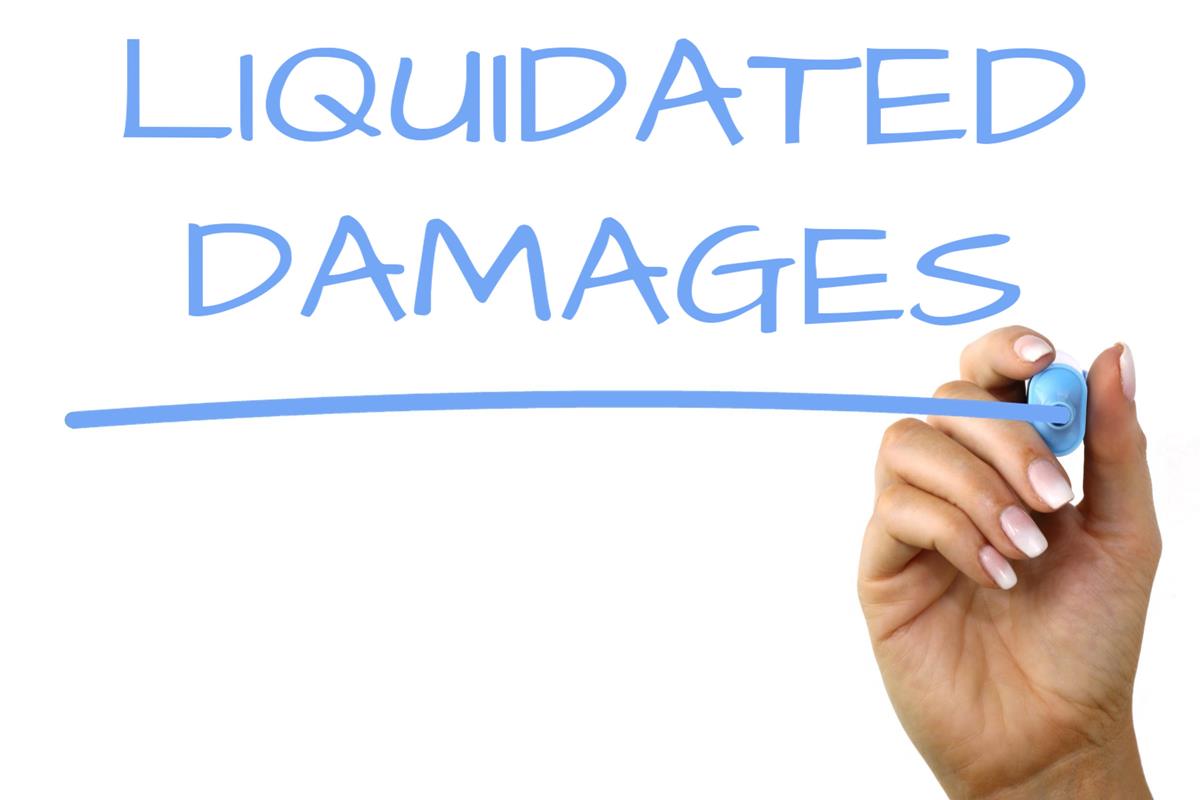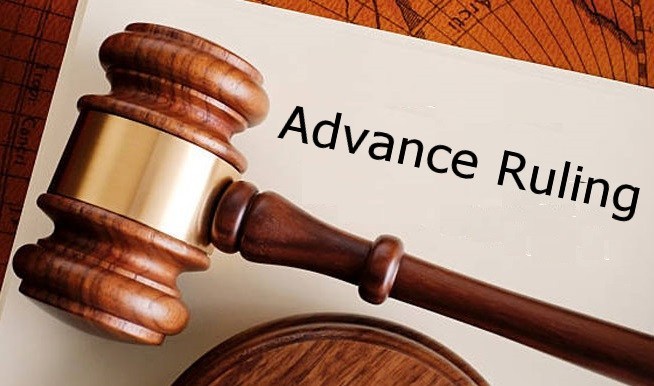Black’s Law Dictionary defines ‘Liquidated Damages’ as cash compensation agreed to by a signed, written contract for breach of contract, payable to the aggrieved party. Section 74 of the Contract Act, 1972 provides that when a contract is broken, if a sum has been named or a penalty stipulated in the contract as the amount or penalty to be paid in case of breach, the aggrieved party shall be entitled to receive reasonable compensation not exceeding the amount so named or the penalty so stipulated. Levy of GST on such liquidated damages has been a litigative issue since long.
Several AARs had held that GST will be applicable on liquidated damages viewing them as consideration for an act of tolerance of non-performance. However latest CBIC Circular on the subject has been a path breaking one and it has spelt out and analyzed the law in a clear manner and has inter alia clarified GST will generally not apply on liquidated damages.
In this article we shall discuss about taxability of liquidated damages under GST law in light of provisions of GST law, judicial pronouncements and the recent circular issued by CBIC on the subject.
Relevant Provisions of CGST Act:
As we know GST is a tax on supply of goods or services or both. The expression ‘supply’ has been defined under Section 7 of the CGST Act,2017. Relevant extract of said Section is given below:
As per Section 7(1)(a) of the CGST Act,2017 supply includes all forms of supply of goods or services or both such as sale, transfer, barter, exchange, license, rental, lease or disposal made or agreed to be made for a consideration by a person in the course or furtherance of business.
Further Section 7(1A) of the CGST Act, 2017 mandates that where certain activities or transactions constitute a supply in accordance with the provisions of Section 7(1) , they shall be treated either as supply of goods or supply of services as referred to in Schedule II.
Paragraph 5 of Schedule II to CGST Act provides a list of activities to be treated as ‘supply of services’ which inter alia comprises – “(e) agreeing to the obligation to refrain from an act, or to tolerate an act or situation, or to do an act“.
Analysis of Provisions: Is GST applicable on liquidated damages ?
For an activity to be taxable under GST, the said activity has to fall under the scope of Supply as per Section 7 of the CGST Act. In the case of liquidated damages, it can be argued that the purpose of agreeing for payment of liquidated damages is to ensure performance and there is no activity involved such as sale, transfer, barter, exchange, license, rental, lease or disposal for goods or services for a consideration.
Further, it may also be argued that the amount of damages received is not a consideration for any of the abovementioned activities. It may be considered as a mere compensation paid and may not qualify as consideration. Thus, excluding it from the scope of supply under Section 7(1).
Further such damages received may not be a consideration for tolerating non-performance. By imposing damages, the customer does not tolerate any loss incurred due to non-performance or delayed performance of contract. The penalties merely aim to compensate the customer so that he can be restored to a position if the default did not occur.
Thus we can conclude that generally, the liquidated damages may not satisfy the essentials of ‘supply’ or ‘service’. As discussed above, the purpose of agreeing to the payment of liquidated damages is to ensure performance. It cannot be said to be a consideration for tolerating non-performance. Further recovering of liquidated damages will not transform a recipient of supply under a contract to a supplier.
In view of above discussion recovery of liquidated damages will generally not be treated as supply and accordingly Paragraph 5(e) of Schedule II read with Section 7(1A) will in itself cannot treat such liquidated damages as supply of services as said Schedule is operative only in cases where any activity / transaction is treated as supply. Accordingly GST should not be applicable on liquidated damages.
However it may be noted that a contractual agreement involving agreeing to the obligation to refrain from an act, or to tolerate an act or situation, or to do an act like non-compete agreement one party agrees, for consideration, not to compete with the other in any specified products, services, geographical location or in any other manner will be regarded as supply and thus be exigible to GST.
Exemption provided towards liquidated damages charged by Government:
As per Entry 62 of Notification No. 12/2017- Central Tax (Rate) dated 28.06.2017 , as amended the liquidated damages charged by Government has been exempted from levy of GST. The Entry is reproduced as under:
Services provided by the Central Government, State Government, Union territory or local authority by way of tolerating non-performance of a contract for which consideration in the form of fines or liquidated damages is payable to the Central Government, State Government, Union territory or local authority under such contract.
Specific exemption on liquidated damages received by Government, may lead to an inference that as per GST Law the liquidated damages are subject to GST.
However it is a settled law that an exemption entry cannot presuppose the levy itself [CBEC vs. Larsen & Toubro Ltd. (2015) 39 S.T.R. 913 (SC)].
Judicial Pronouncements:
The Authority for Advance Ruling (‘AAR’), Telangana, in the case of M/s. The Singareni Collieries Company Limited as per order dated 8th April,2022 had held that Liquidated damages and penalties received due to breach of conditions of the contract from the contractor are exigible to tax under CGST and SGST Acts.
Further the Authority for Advance Ruling (‘AAR’), Maharashtra, in the case of Maharashtra State Power Generation Company Ltd has held that liquidated damages are to be viewed as consideration for an act of tolerance of non-performance, and thus are subject to GST at 18%. The said ruling has been further affirmed by the Maharashtra Appellate AAR also [2018 (70 GST 411)].
Further, there are similar rulings pronounced in the following cases:
However it is important to note here that in above rulings the judicial authorities have adjudged that liquidated damages would be subject to GST on bases of para 5(e) of Schedule II of the CGST Act,2017. It may be noted here that initially the Schedule II was linked to Section 7(1)(d) of the CGST Act which mandated that activities covered in Schedule II would be regarded as supply of goods or services as indicated therein.
However later on Section 7(1)(d) was omitted and new Section 7(1A) was inserted with retrospective effect from 01.07.2017 by CGST (Amendment) Act,2018 (enforced from 01.02.2019) , which as discussed earlier mandates that Schedule II will operate only for activities which constitute supply as per Section 7(1). Thus Schedule II in itself will not determine whether an activity / transaction is supply or not. Thus the relevance of ruling in above case laws needs to be seen.
Further, the Bombay High Court vide its order dated 13.09.2019, in the case of Bai Mamubai Trust, Vithaldas Laxmidas Bhatia, Smt. Indu Vithaldas Bhatia vs. Suchitra, has held that GST is not payable on damages/compensation paid for a legal injury. The principle laid down by the Court is that such payment does not have the necessary quality of reciprocity to make it a ‘supply’ and, therefore, GST is not payable on such amount.
Latest CBIC Circular on clarifying GST on liquidated damages
CBIC vide its Circular No. 178/10/2022-GST dated 03-08-2022 has come up with several clarifications which includes clarification on levy of GST on liquidated damages which is briefly stated as under:
Breach or non-performance of contract by one party results in loss and damages to the other party. Therefore, the law provides in Section 73 of the Contract Act, 1972 that when a contract has been broken, the party which suffers by such breach is entitled to receive from the other party compensation for any loss or damage caused to him by such breach. The compensation is not by way of consideration for any other independent activity; it is just an event in the course of performance of that contract.
The amount paid as ‘liquidated damages’ is an amount paid only to compensate for injury, loss or damage suffered by the aggrieved party due to breach of the contract and there is no agreement, express or implied, by the aggrieved party receiving the liquidated damages, to refrain from or tolerate an act or to do anything for the party paying the liquidated damages, in such cases liquidated damages are mere a flow of money from the party who causes breach of the contract to the party who suffers loss or damage due to such breach. Such payments do not constitute consideration for a supply and are not taxable.
The key in such cases is to consider whether the impugned payments constitute consideration for another independent contract envisaging tolerating an act or situation or refraining from doing any act or situation or simply doing an act. If the answer is yes, then it constitutes a ‘supply’ within the meaning of the Act, otherwise it is not a “supply”.
The CBIC Circular should be appreciated as it has make the things clear that GST will not apply on the Liquidated Damages as there is no consideration involved and thus there is no supply.
***
Don’t miss the next Tax Update / Article / Judicial pronouncement
Subscribe to our newsletter for FREE to stay updated on GST Law
Resolve your GST queries from national level experts on GST free of cost
Frah Saeed is a law graduate specializing in the core field of indirect taxes and is the Co-founder of taxwallah.com. She has authored many publications on GST and is into full-time consultancy on GST to big corporates. She as a part of taxwallah.com heads a team comprising of Chartered Accountants and Advocates and plays a key role in our mission to disseminate GST knowledge to all.




